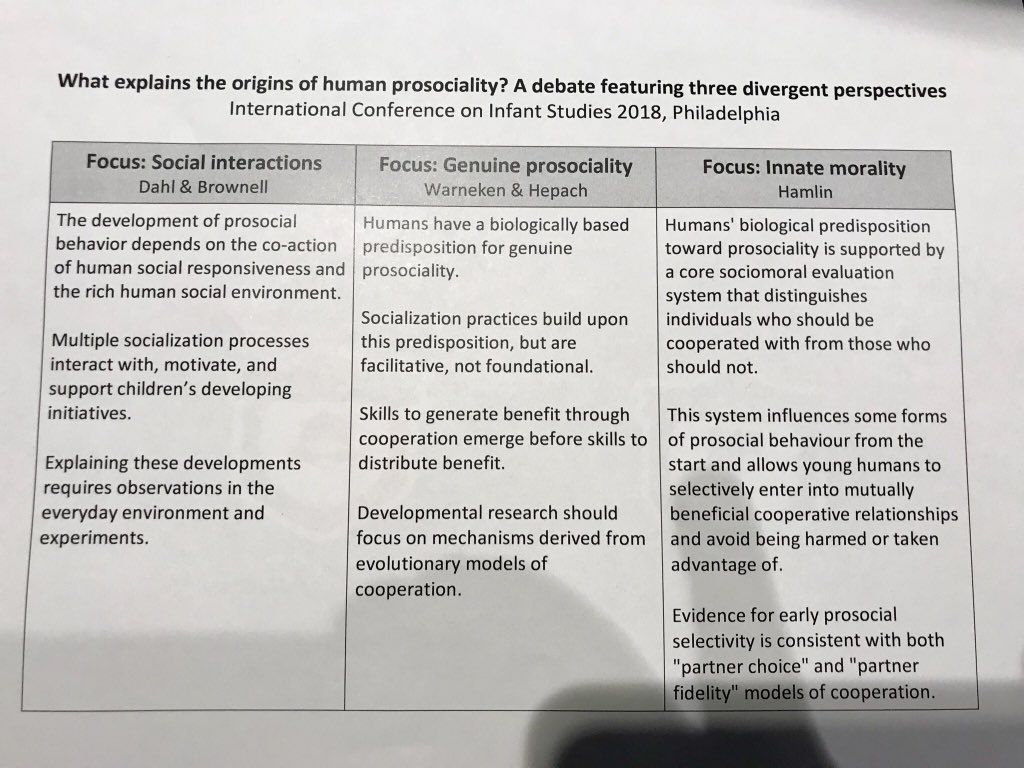
Cognitive scientist at Stanford. Open science advocate. @stanfordsymsys director. Bluegrass picker, slow runner, dad.
How to get URL link on X (Twitter) App




 Dahl up first. Puzzles of prosociality: there’s an amazing ability to help others prosocially from an early age, but some infants don’t! Why? Behaviors emerge via 1) social interest and 2) socialization.
Dahl up first. Puzzles of prosociality: there’s an amazing ability to help others prosocially from an early age, but some infants don’t! Why? Behaviors emerge via 1) social interest and 2) socialization.
A big wakeup call for me was an errror I made in this paper: langcog.stanford.edu/papers/FSMJ-de…. Figure 1 is just obviously wrong in a way that I or my co-authors or the reviewers should have spotted. Yet we all missed it completely. Here's the erratum.
External Tweet loading...
If nothing shows, it may have been deleted
by @siminevazire view original on Twitter